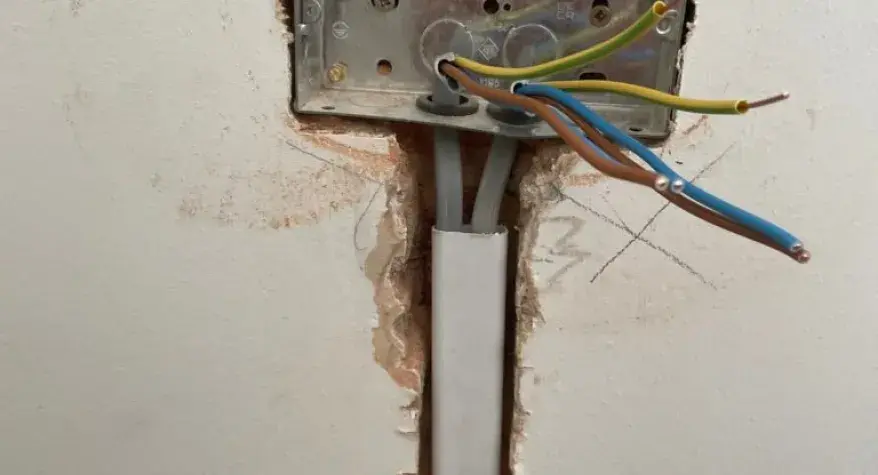3 things that can go wrong with house rewires (and how to prevent them)
Electricians in South Birmingham, like myself, are often called upon to carry out house rewires. And in my experience, people really dread them.
That’s not a surprise.
Rewires are dirty, and messy and cause a lot of upheaval.
But they can be a necessary evil, as they ensure the safety and electrical efficiency of your house.
Read about one of my houses rewires here.
Here are my top three things that can go wrong with a house rewire and how to prevent them.
1. Your expectations
Although the house rewire might be your end goal, the electrician is not the only tradesperson who you will need to use for this job. Most people who are completing a house rewire as part of a bigger renovation job may know that they need plumbers, plasterers, carpenters and more on board.
But not many customers realise that even if you are only planning a house rewire, rather than full renovation works, you will still need a plasterer to make the walls good again once the rewire has been completed and a carpenter to replace any floorboards that have been pulled up.
Your electrician is there to replace the cables and sockets, as well as other electrical features that you have agreed on. He or she will need to pull up floorboards and break into the walls in order to do their job. There will inevitably be a mess from this and a reputable electrician will do their best to leave things in as good a condition as possible when they finish.
However, an electrician is not a plasterer or a carpenter. Depending upon the arrangement they will do their best to make good the walls and floorboards once they have finished. You will still need a carpenter to repair any damaged floorboards and a plasterer to come in afterwards to repair the walls as they have the experience to do so. After all, you want a quality finish to your newly rewired property. As long as your expectations are in line with that then this potential problem is easily overcome.
2. Your timeline
You don’t want people getting on each other's toes as they are working. You also don’t want your electrician or plumber ripping up the lovely plasterwork that you have just done, meaning you need it done again!
Make a plan of when you will need each tradesperson to avoid any clashes. Carefully thinking through the stages of the work that you are planning will mean that you avoid this kind of additional disruption.
3. Your planning
Another thing that could go wrong is your planning. It is crucial that you discuss your plans with your electrician before any work starts.
You should decide exactly where you want socket points and light switches to go and have this agreed upon with your electrician. Drawing a sketch of your requirements and keeping a copy is a good idea.
You need to make sure that you are both clear about what work you are asking them to do. It is possible to change your mind at a later stage but any changes can add cost to the job and may make it more difficult to carry out. It is best to be sure of where you want your points to go before any work starts.
Avoid going wrong by planning well
House rewires are a dirty, messy business; there is no getting away from that. But, if you want to avoid the worst of what could happen then make sure that your expectations, your timeline and your planning are in order. Follow these simple steps and you can take the worst of the headache out of a house rewire.




